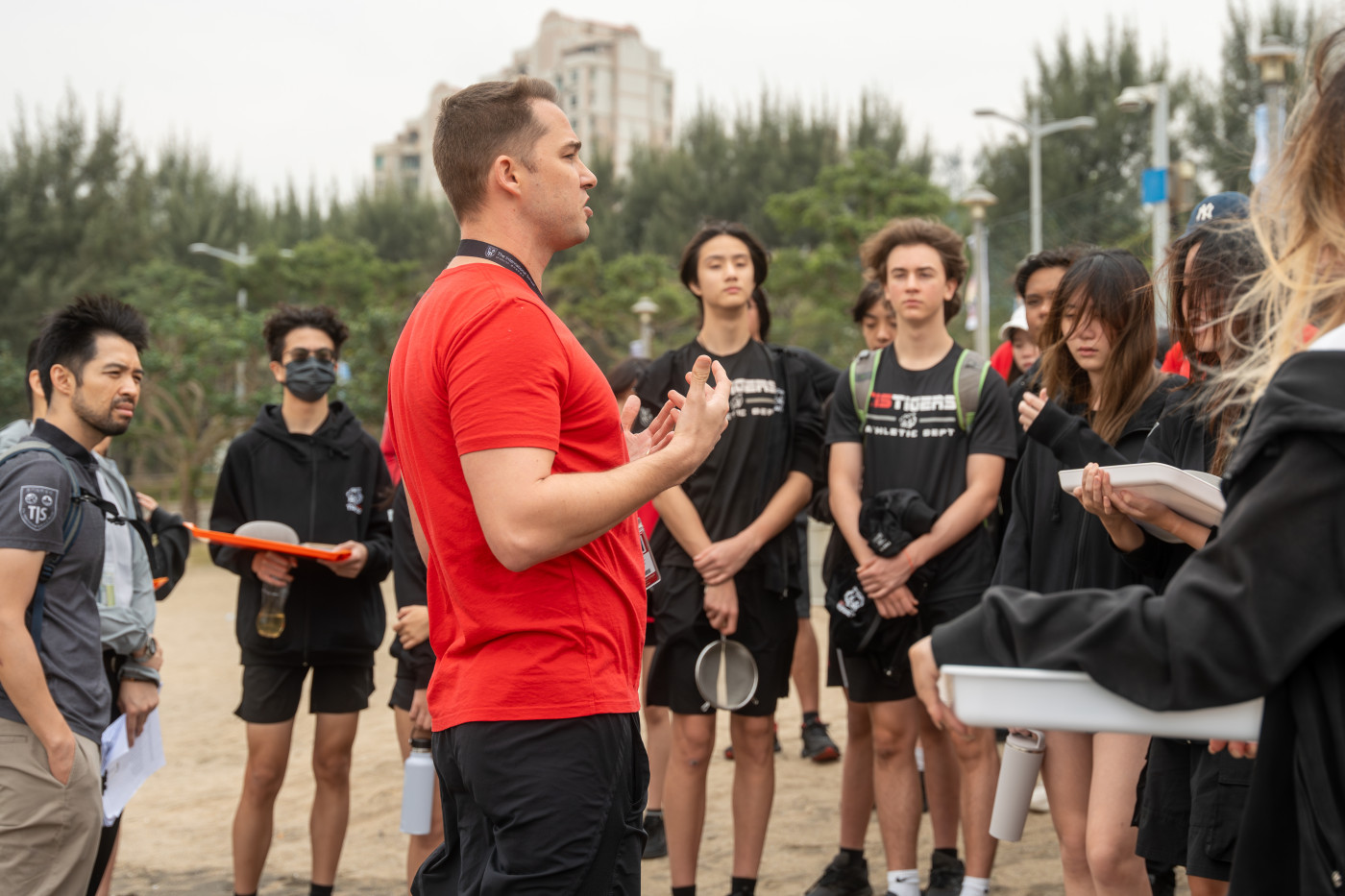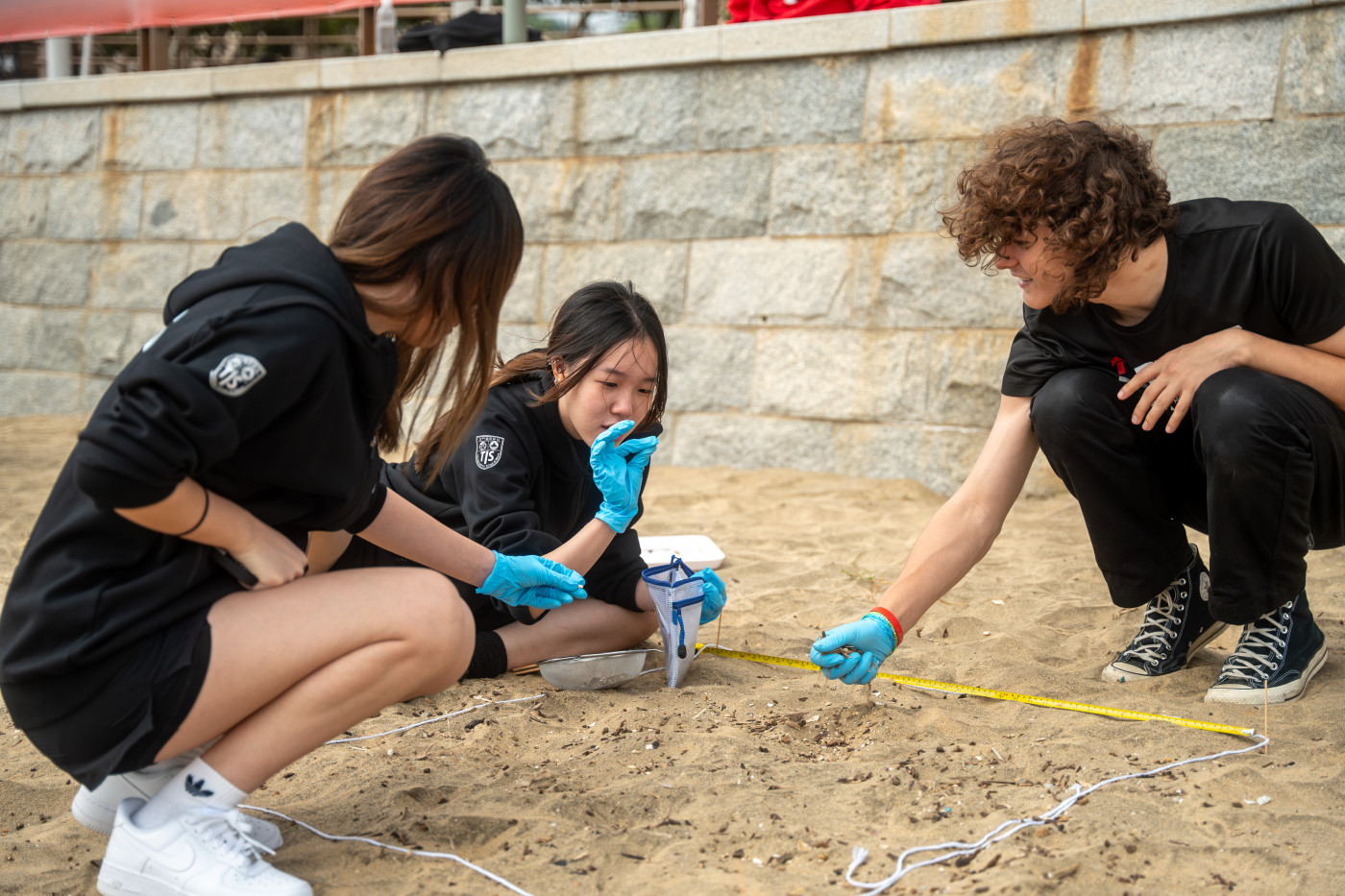
From Classroom to Coastline: IB Students Investigate Plastic Pollution at Hac Sa
Bridging classroom learning with real-world experiences is essential for developing knowledgeable, skilled and engaged students. Recently, Grade 11 students participated in the IB Collaborative Science Project right here in our city, at the Hac Sa Beach, where they conducted field research to investigate plastic pollution.
This project is a key component of the International Baccalaureate (IB) curriculum, designed to enhance students' understanding of scientific concepts through practical, hands-on experiences. This project typically involves students working together to investigate real-world issues, often focusing on environmental challenges, sustainability, and the scientific method.

During this immersive outing, students performed 1 x 1 m quadrant sampling to assess the types and quantity of plastic waste along the beach, gaining practical skills in data collection and analysis. The highest concentration of plastics was found on the tidal lines, with types of plastic ranging from bottle caps, straws, containers and more. This hands-on research allowed them to see firsthand the environmental challenges facing their local ecosystem.
The students worked in interdisciplinary groups, researching how Biology, Physics, and Chemistry all connect to the investigation. Following their research, students returned to school to prepare presentations about their findings, and reflect on potential solutions to tackle this environmental issue. This step allowed them to articulate their learning and share insights with their peers, engaging in meaningful discussions about the impact of plastic pollution.

Through this investigation, students gain a deeper appreciation for their role in the world. They understand that local actions can have significant global repercussions, contributing to broader efforts to address environmental challenges. We are proud of our students and staff for their commitment to creating a cleaner, healthier planet that inspires others and embodies the belief that collective action can lead to meaningful change for our environment—both locally and globally.









